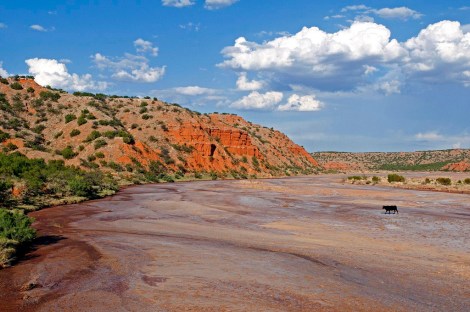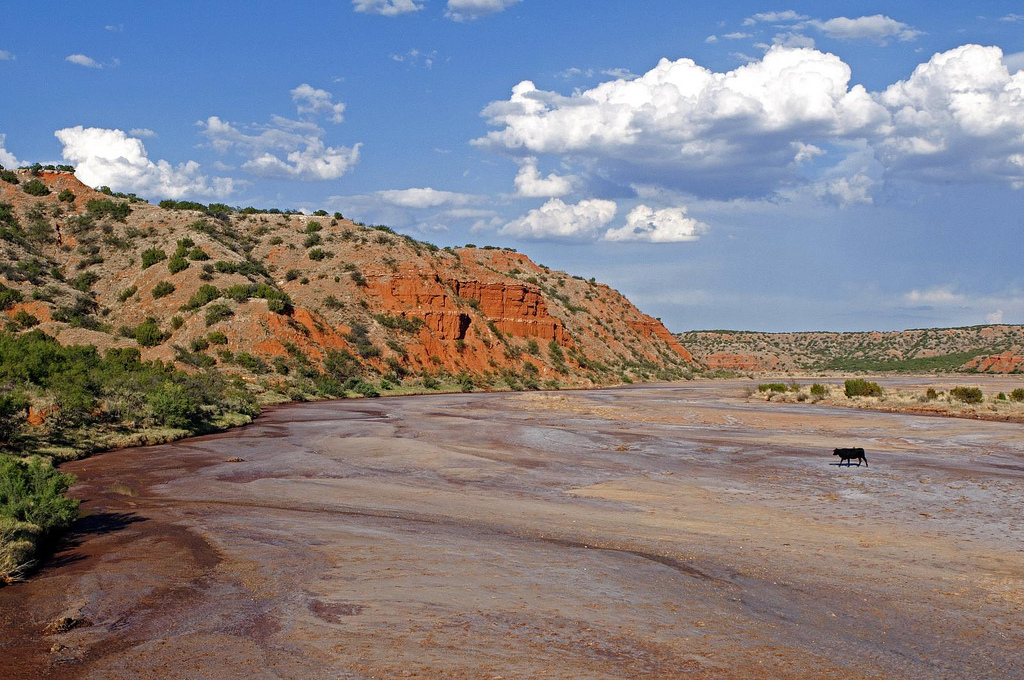The U.S. Supreme Court will soon decide whether to take on a case that could upend decades of delicately balanced water agreements between states — a case that’s all the more pressing in a year when two-thirds of the continental U.S. has been hit by drought.

Texas Parks and WildlifeDrought in Texas’ Red River.
Oklahoma and Texas water authorities are anxiously awaiting word on whether the court will hear a challenge to a federal appeals court decision that threw a key water compact into jeopardy. In Tarrant Regional Water District v. Herrmann, the 10th U.S. Circuit Court of Appeals rejected Texas’ claims that Oklahoma was keeping more water than allowed under the 1978 Red River Compact. If the appeals court decision stands, that could throw interstate water agreements across the country into question.
James Oliver, the general manager of Texas’ Tarrant Regional Water District and a party in the lawsuit, writes in Politico of coming “water anarchy” should the decision stand:
at risk is the viability of Native American nations, as well as Western farmers and ranchers whose livelihoods and very existence depend on water from interstate compacts. These include the farmers of Southern California’s Imperial and Coachella Valley, prime sources of winter fruits and vegetables for American consumers. Add to the casualties the shale oil, coal and petroleum producers Americans are counting on to end our dependence on imported energy.
OH, well in that case!
The ruling would apply to some of the country’s most important waterways: the Colorado River, which feeds several of the West’s largest, driest metro areas, and the Yellowstone River, which feeds Montana’s fracking fields. And it could undermine some of the fragile agreements that keep water pumping and cities growing across the American West (looking at y’all in thirsty San Diego).
So what would Oliver’s “anarchy” actually look like?
More from him, in The Denver Post:
No act of legal revisionism by any court in the country has so much potential to generate economic disruption … In short, if the Supreme Court decides not to hear this case, virtually every Western state will have no choice but to engage in what could easily become as many as two dozen massively contentious negotiations on which will turn the futures of numerous metro areas and other communities, as well as industries, agricultural regions and Indian tribes. In our factious contemporary political life, can such far-reaching interstate agreements as our water compacts, arrived at in the more placid periods, be put back together, if the courts pull them apart?
Um, so, it’s probably a good thing that Tarrant County doesn’t allow any daytime lawn watering year-round.



